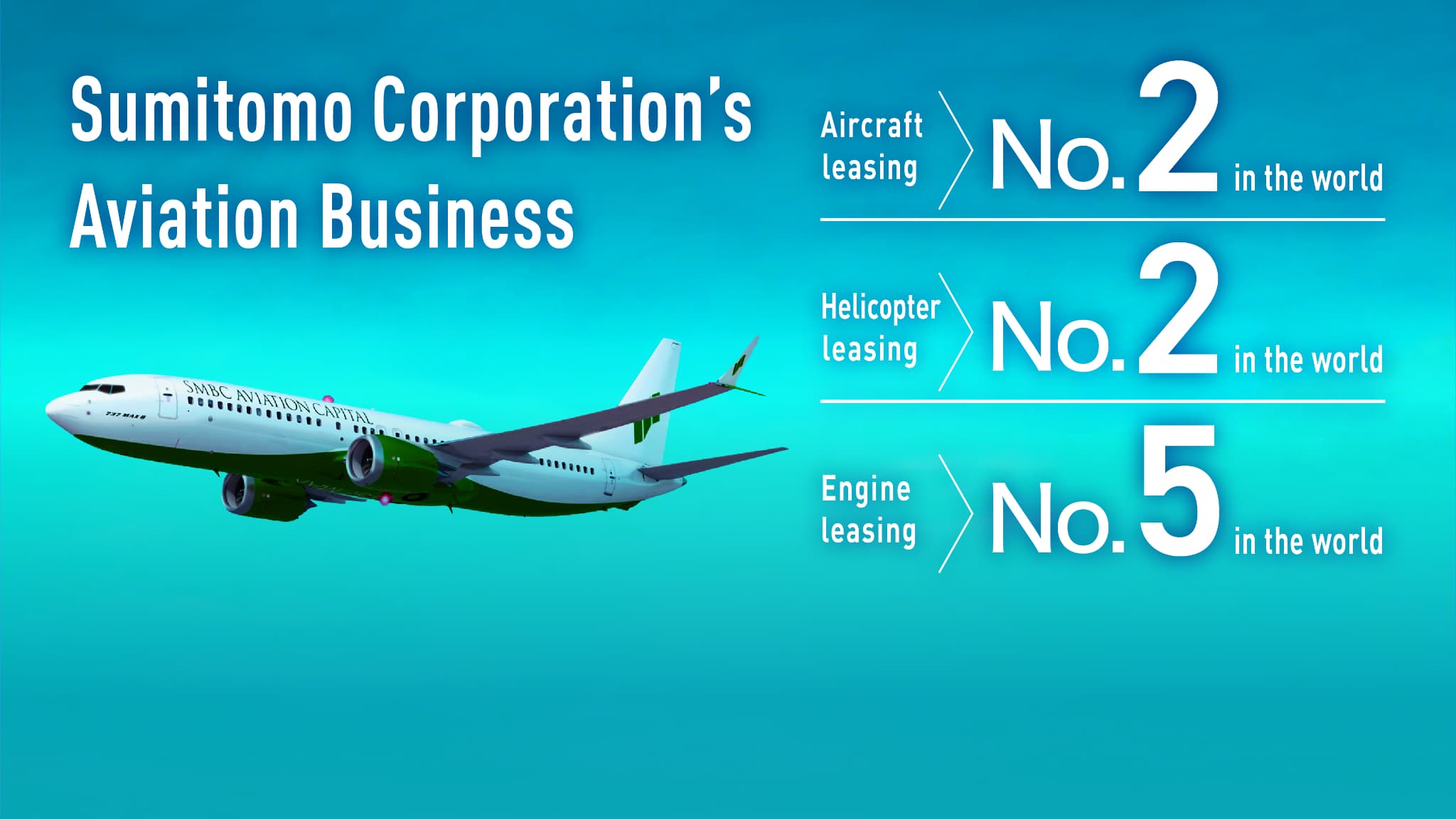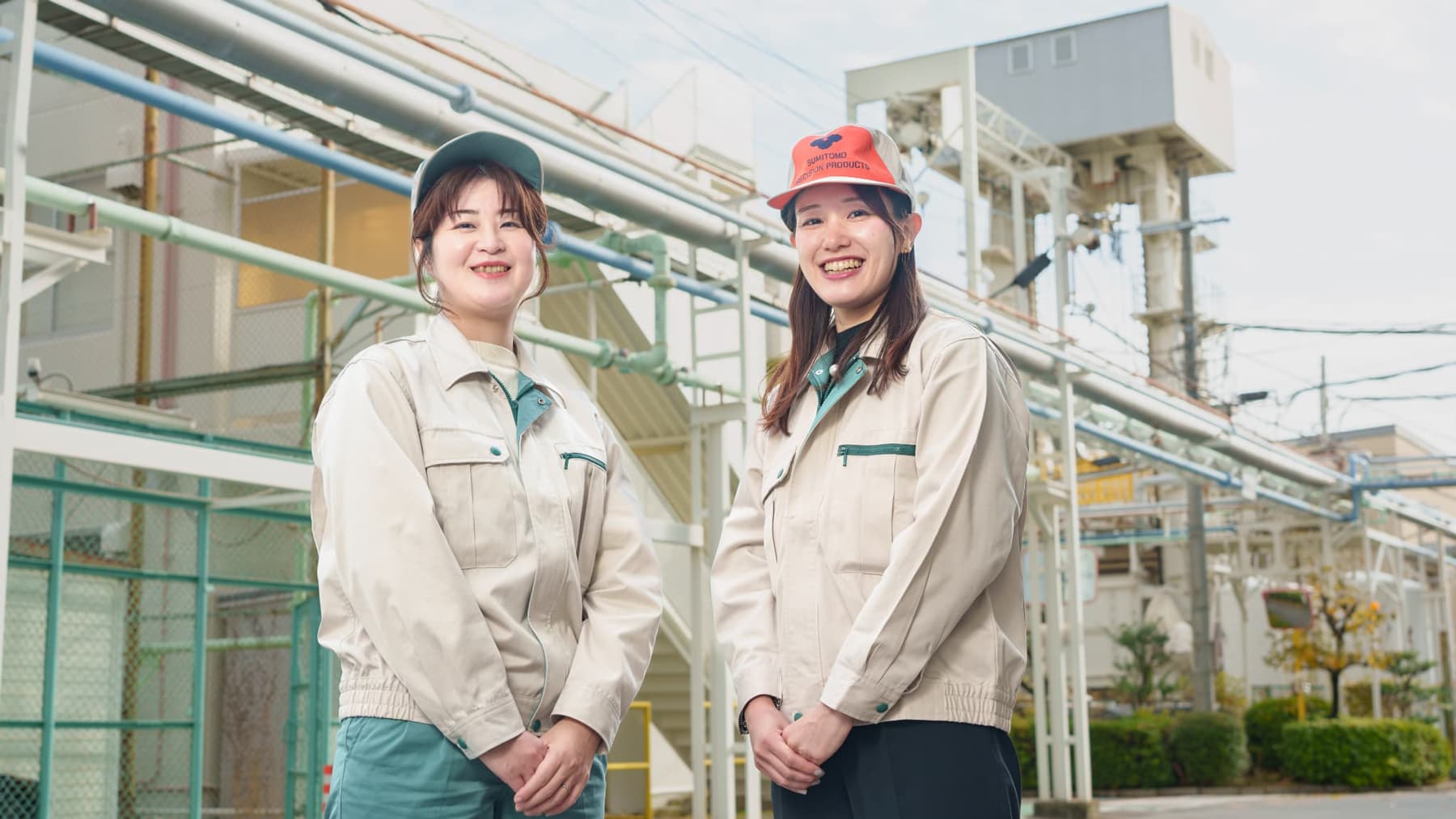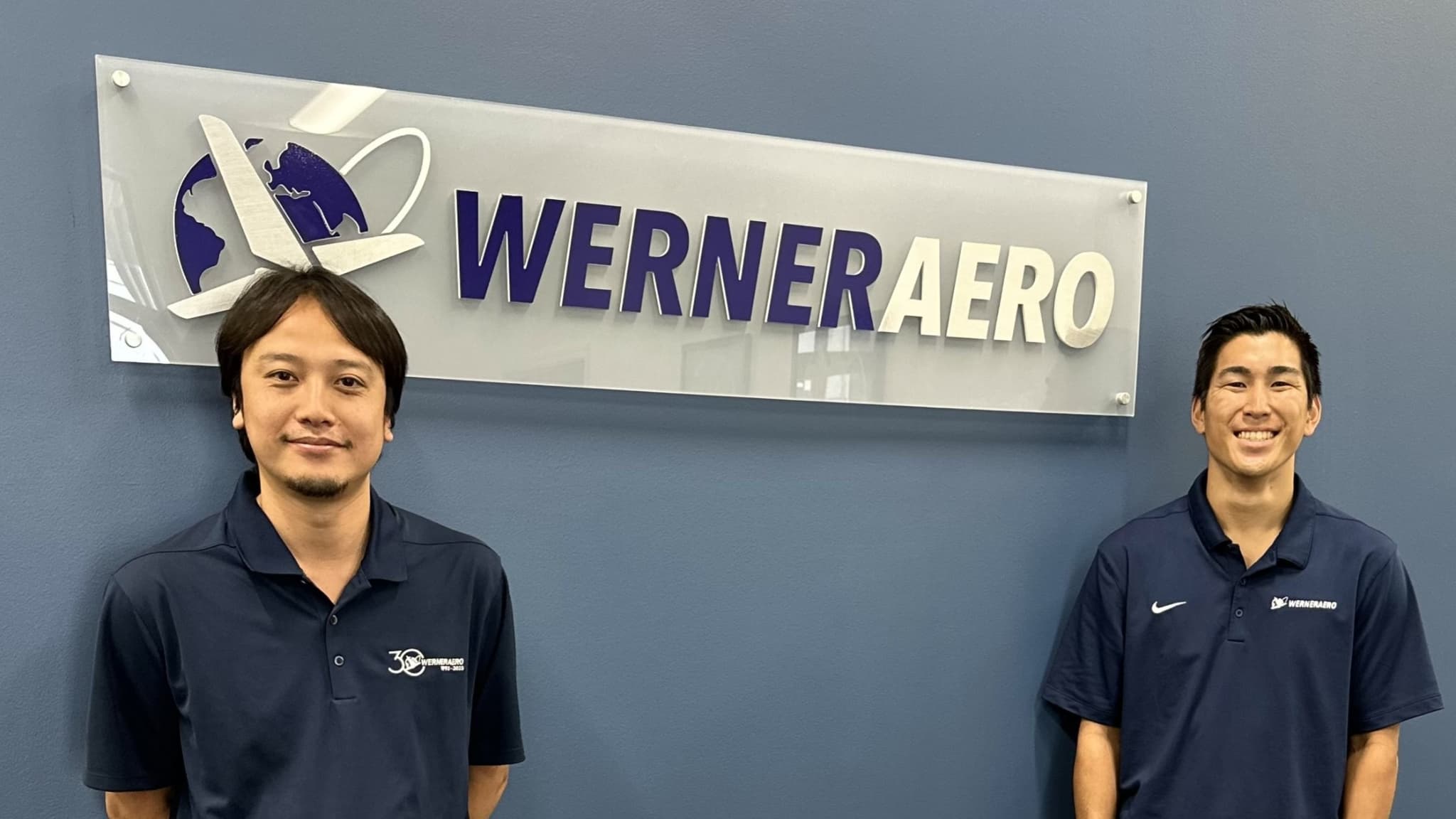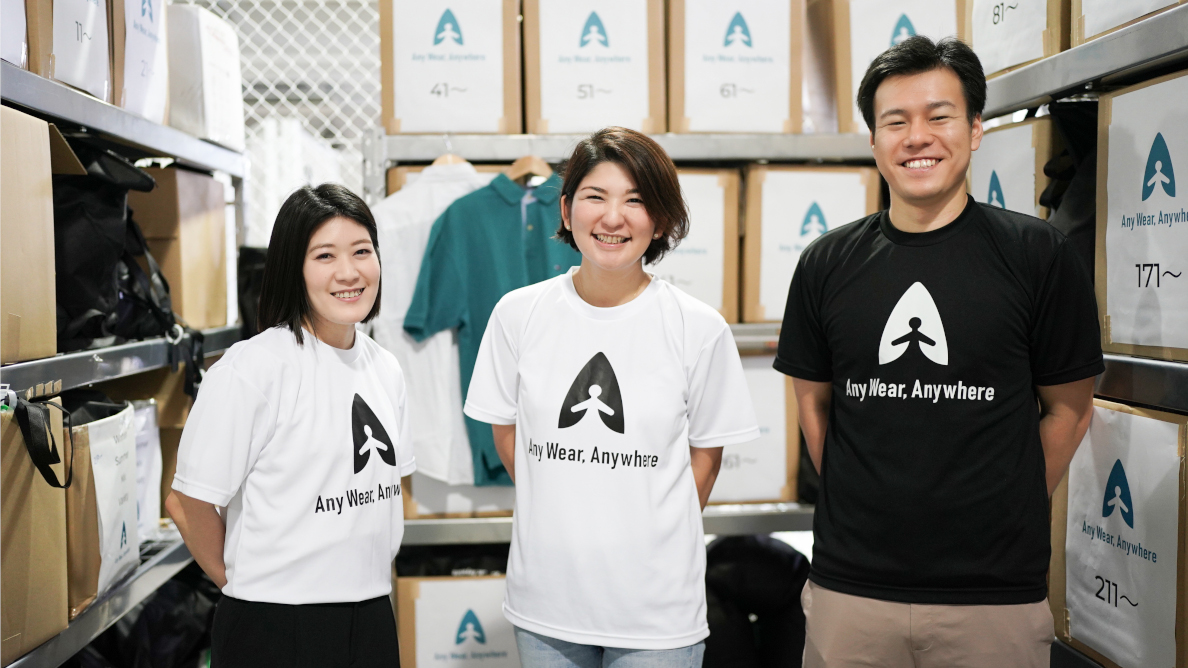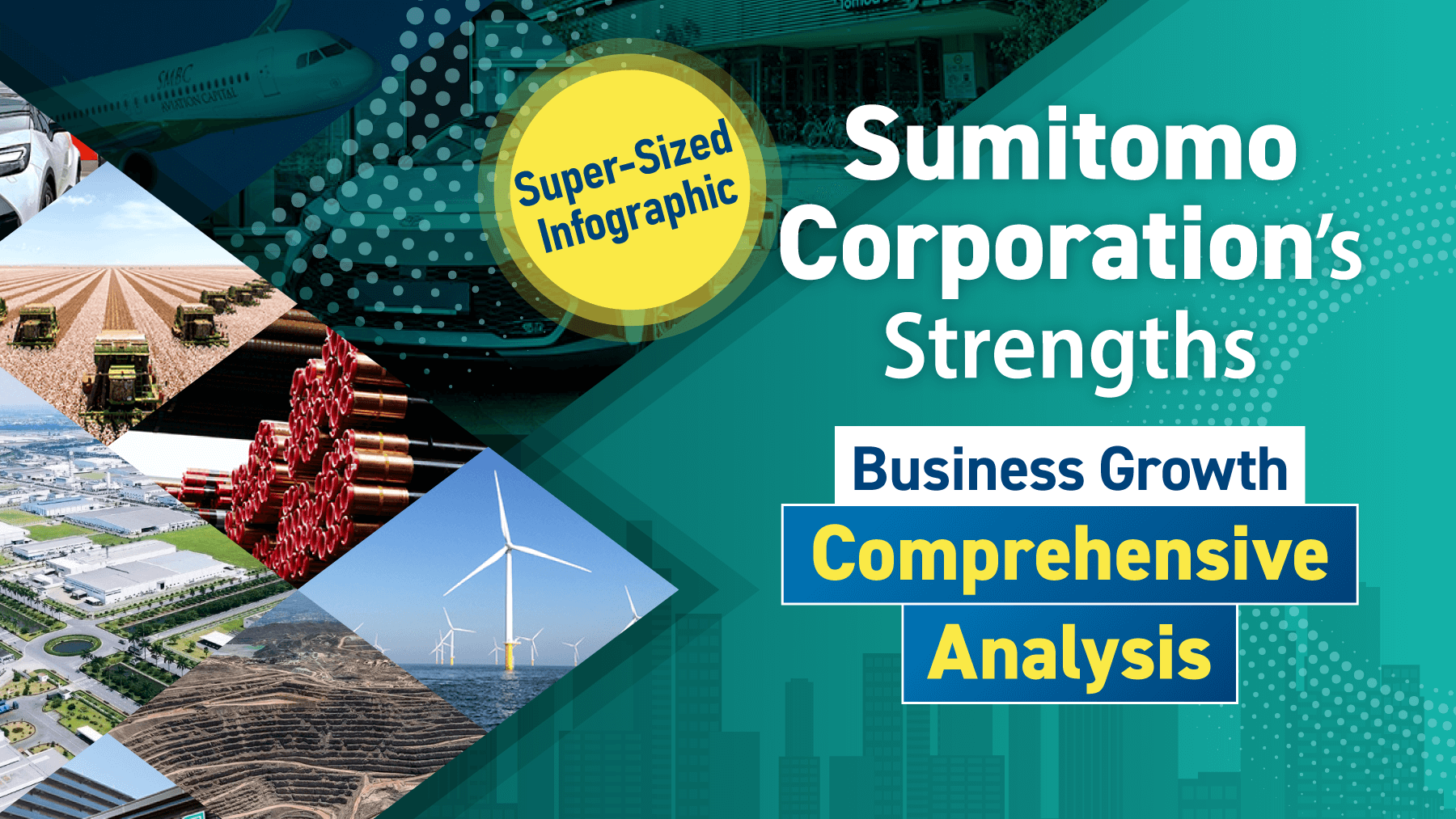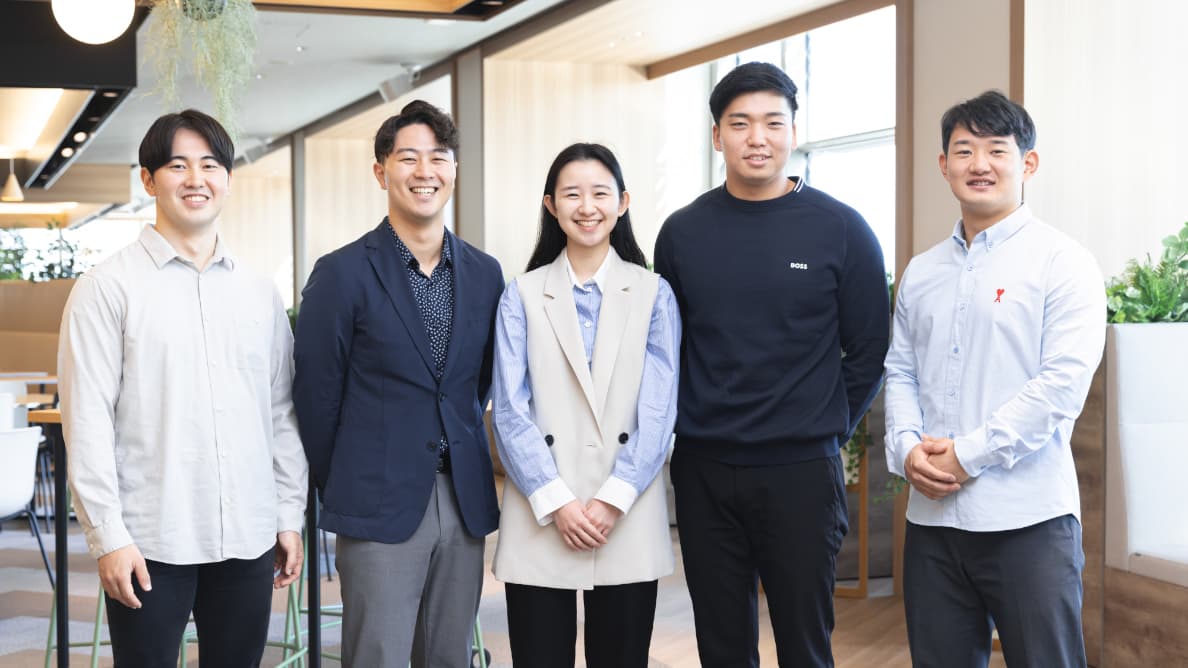
- TOP
- Enriching+TOP
- From Ship Trading to Offshore Wind Power: Sumitomo Corporation's Maritime Business Supporting Global Maritime Transport
2025.9.29
Business
From Ship Trading to Offshore Wind Power: Sumitomo Corporation's Maritime Business Supporting Global Maritime Transport
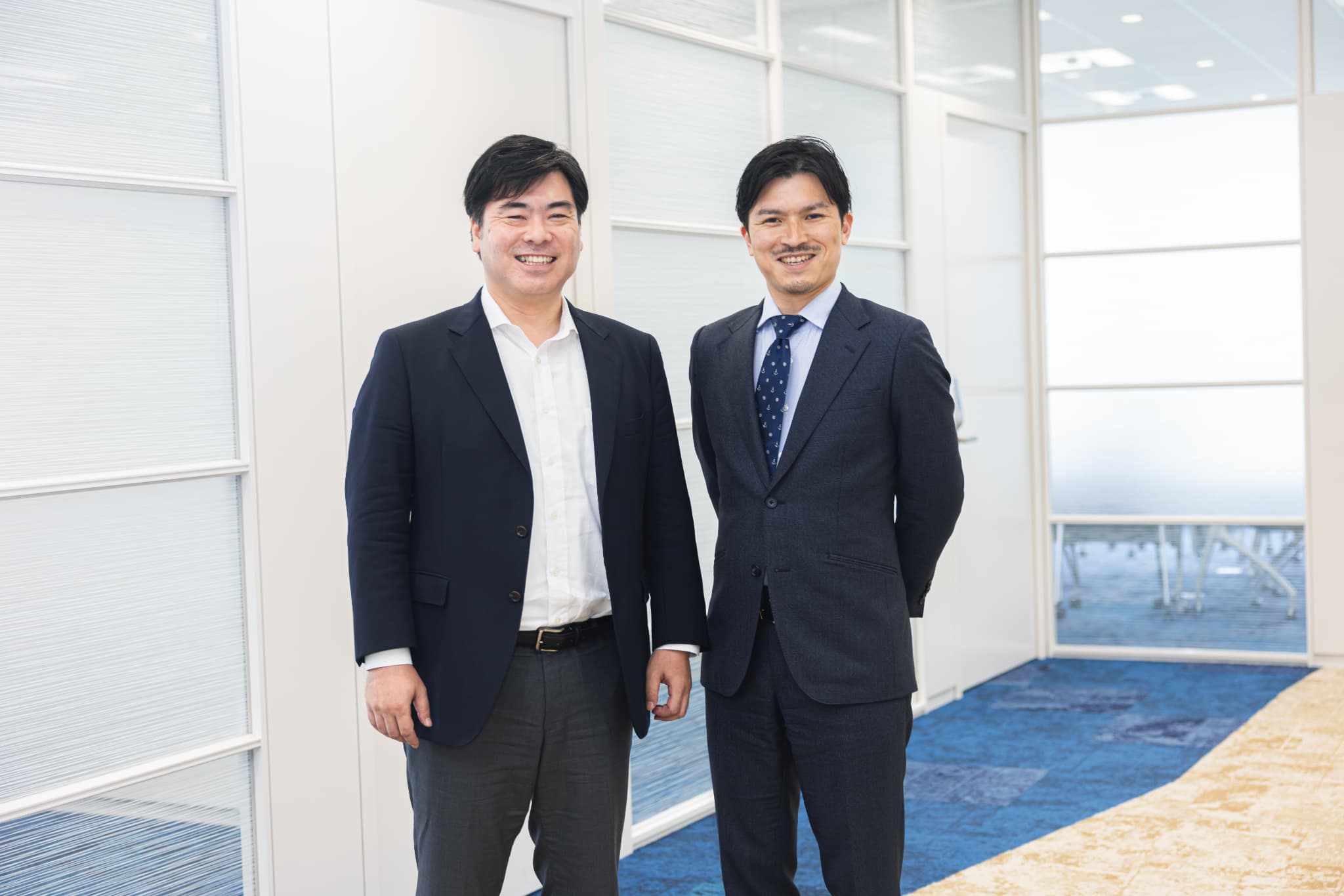
More than 99% of Japan's trade depends on maritime transport, making both shipbuilding and shipping vital forms of social infrastructure underpinning the economy and people's lives. Since entering the ship business in the 1950s, Sumitomo Corporation has expanded from its foundation in ship trading into business domains that address diverse social challenges, such as decarbonization and environmental initiatives. Today we spoke with members of the Ship & Marine SBU and Sumisho Marine, who are working on the frontline of this business, about the strengths, prospects and appeal of working in a field that spans the world's oceans.
-

Group Manager, Ship Sales Group No. 2, Ship Business Unit,
Sumisho MarineHideyuki Bamba
Bamba joined a shipbuilding company as a new graduate in 2002 and worked mainly in the head office’s newbuilding sales department, but also in the shipyard as well as in London office. He joined Sumisho Marine in 2021, working in ship trading in Europe and the Middle East, and assumed his current role in 2022.
-

Sub Leader, Marine Business Development Team,
Ship & Marine SBU, Sumitomo CorporationTakaaki Tanaka
Tanaka joined Sumitomo Corporation in 2011. Handled ship trading in Asia and Europe, then worked in Planning team. From 2018, spent two years as a trainee at Canadian shipping company Fednav. Since returning, has been engaged in low-emission vessel projects and offshore wind power-related businesses. Nicknamed "Thomas" since his time in the trading business.

- From Ship Trading to Shipbuilding, Ship Owning and New Businesses in Decarbonization
- Coordination through Oshima Shipbuilding, One of the World's Most Productive Yards
- Offshore Wind Power: Contributing to Decarbonization with Existing Assets
- Navigating the Dynamic Shipbuilding and Shipping Industry Toward a Better Society
From Ship Trading to Shipbuilding, Ship Owning and New Businesses in Decarbonization
Could you give us a brief history of Sumitomo Corporation's ship business?
TanakaSumitomo Corporation's ship business began with trading in the 1950s. In 1973, together with partners, we established Oshima Shipbuilding (hereinafter "Oshima"), entering the shipbuilding business. In 1985, we commenced our ship owning business, and in 2004 we established Triton Navigation in the Netherlands, expanding into owning and operations.
BambaSumisho Marine was established in 1996 as a back-office and administrative support company for the ship financing operations handled by Sumitomo Corporation. Since 2021 it has embarked on a new chapter as an operating company and profit center that consolidates and carries out the ship-trading business previously handled by Sumitomo Corporation. Working closely with Sumitomo Corporation, we provide end-to-end services ranging from newbuilding, sale and purchase, chartering brokerage and financing arranegement to ship operation support.
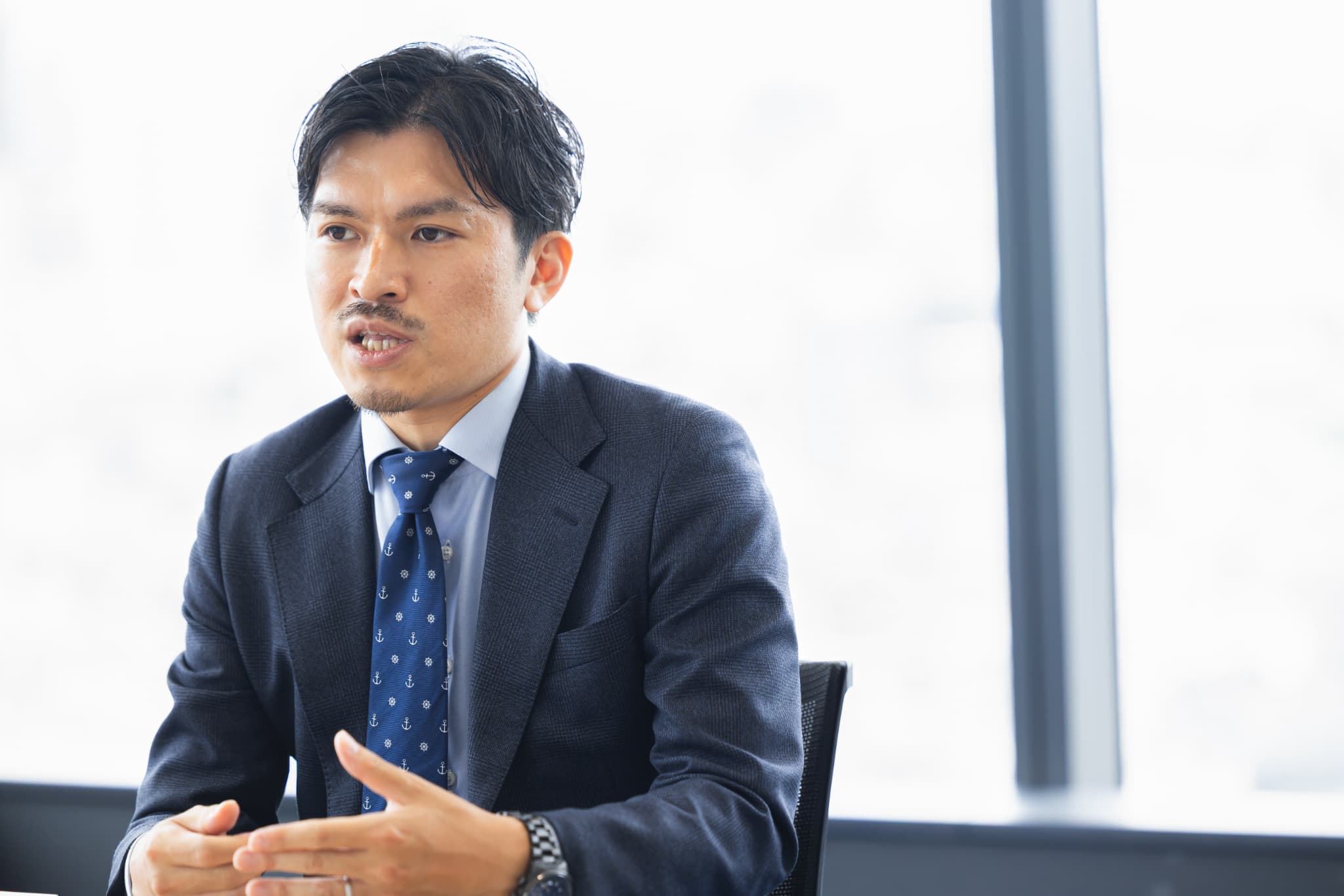
.jpg?h=1000&iar=0&w=1500)
TanakaFollowing the 2021 organizational restructuring, the Ship & Marine SBU has been focusing on new businesses in decarbonization. Our role is to oversee strategy and resource allocation across the SBU, including group companies, making timely and appropriate investments while strengthening existing businesses to ensure sustained competitive advantage.
Coordination through Oshima Shipbuilding, One of the World's Most Productive Yards
What are the strengths of Sumitomo Corporation's ship trading business, the foundation of your operations?
BambaOur greatest strength is that we are the only integrated trading company with a domestic shipyard in our group. Oshima builds nearly 40 bulk carriers per year, ranking among Japan's top producers. In the small- and mid-size segments, it commands about 15% of the global market share.
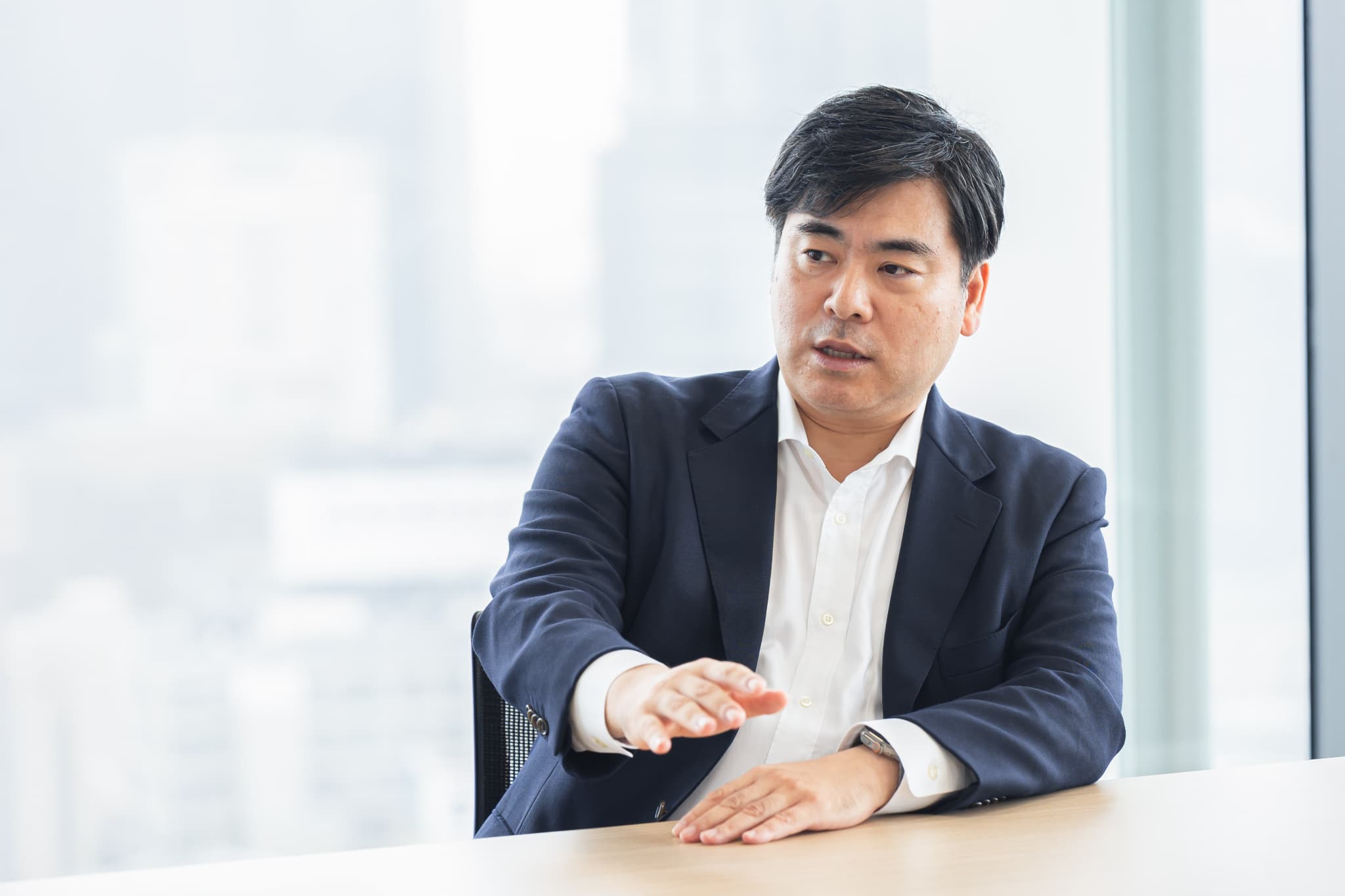
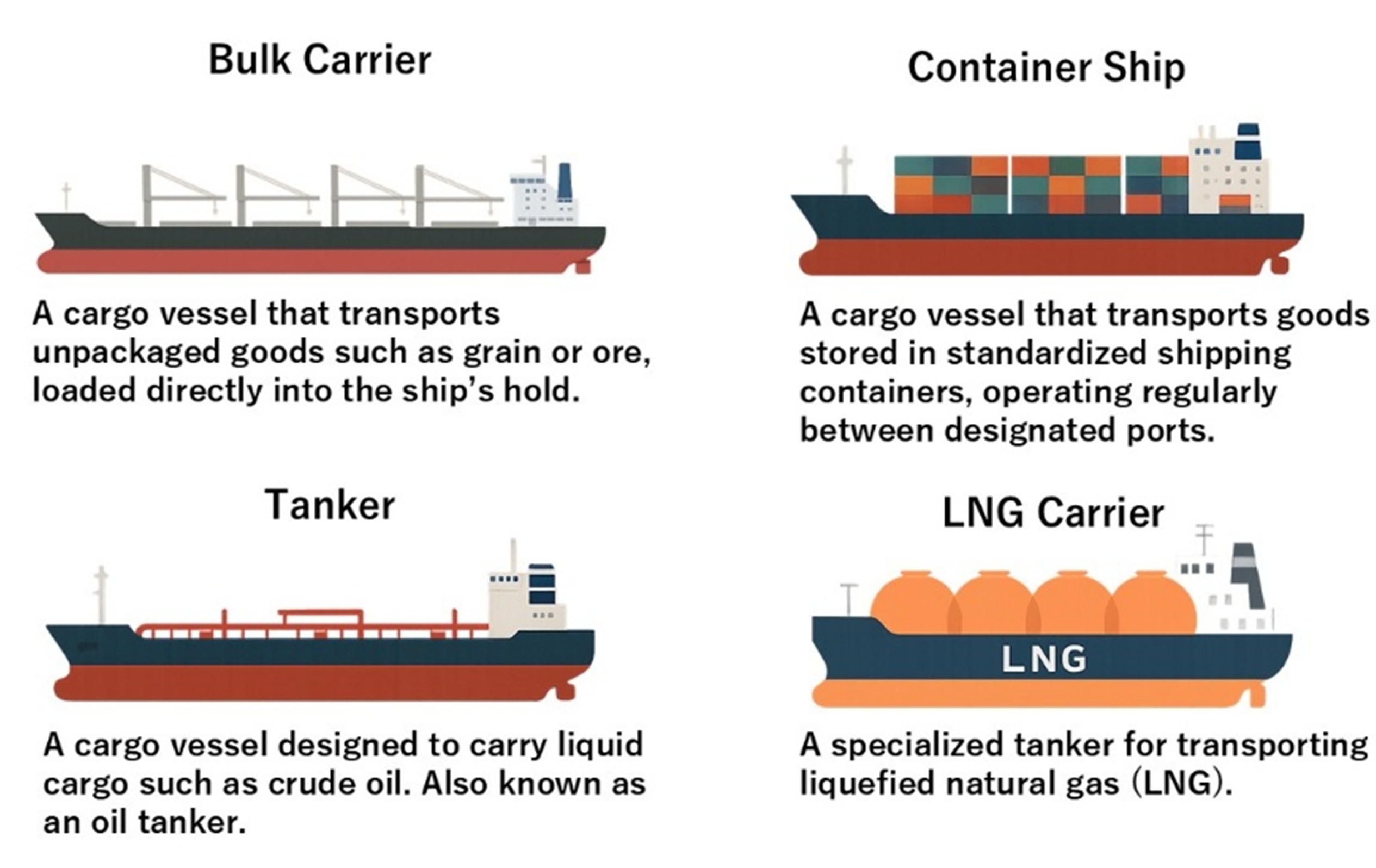
Leveraging this network, we have also expanded into other vessel types such as large bulkers and tankers, as well as secondhand ships and financing arrangements, enabling us to transact with a wide range of shipowners and shipyards. This network also supports the growth of our ship owning business, diversifying our portfolio in an industry known for its volatility.
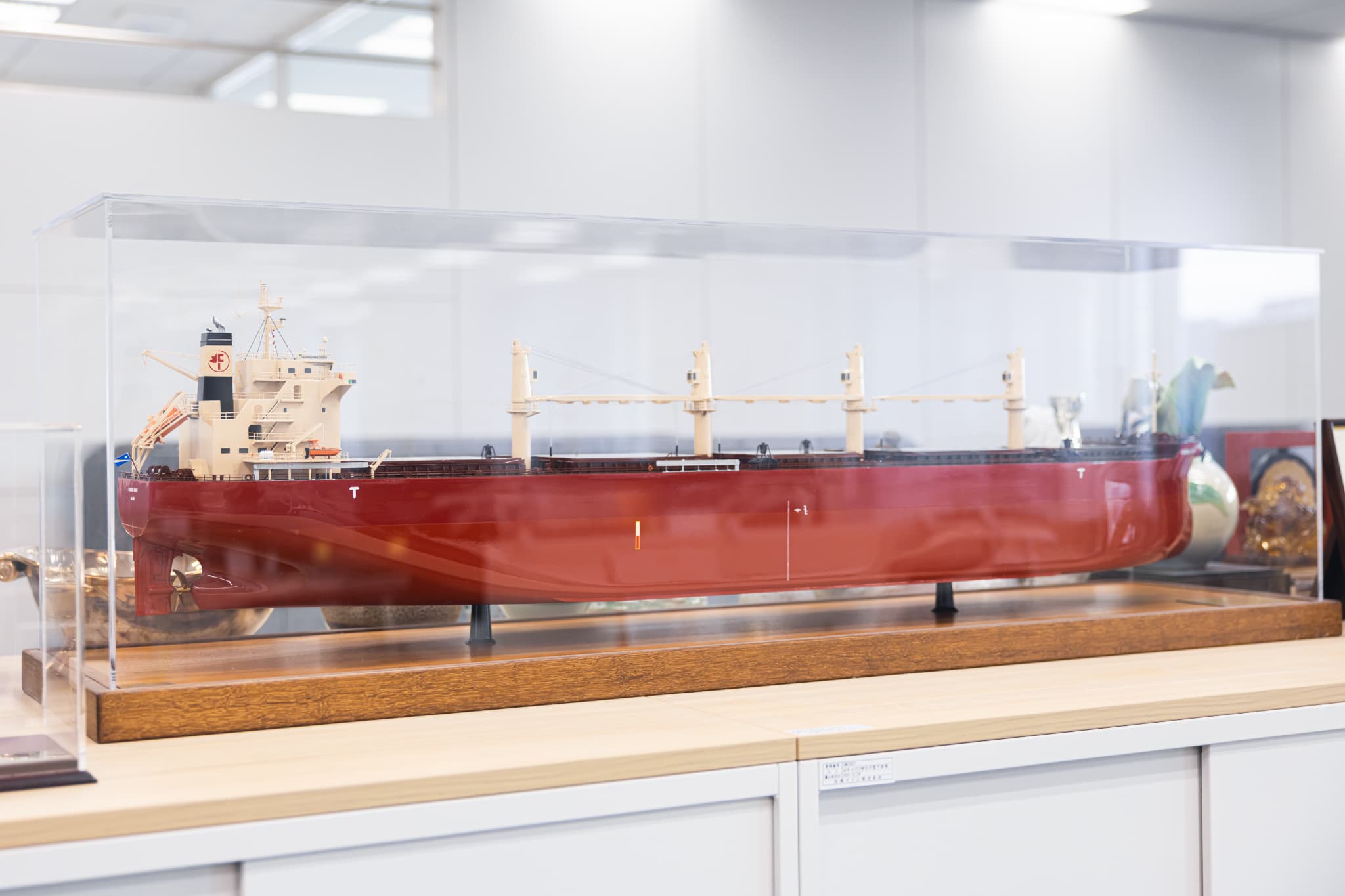
How are customer needs and market trends changing today?
BambaWith global population growth, demand for maritime transport is expected to rise. At the same time, shipping is a single global market, making it extremely competitive and exposed to geopolitical risks. Recently, we've seen shifts that were rare a decade ago – such as heightened China risk under the Trump administration, rising newbuilding prices driving up demand for bareboat charters*, and European shipbrokers – who function similarly to trading companies – opening Tokyo branches to compete in a traditionally stronghold market for trading firms.
To adapt to market shifts and diversify our business, Sumisho Marine has increased its European presence. We now have four representatives stationed in London, Amsterdam and Athens, working closely with colleagues in Tokyo.
*Where shipowners provide only the vessel, and charterers handle operations and management.
Decarbonization remains another major topic, as we understand.
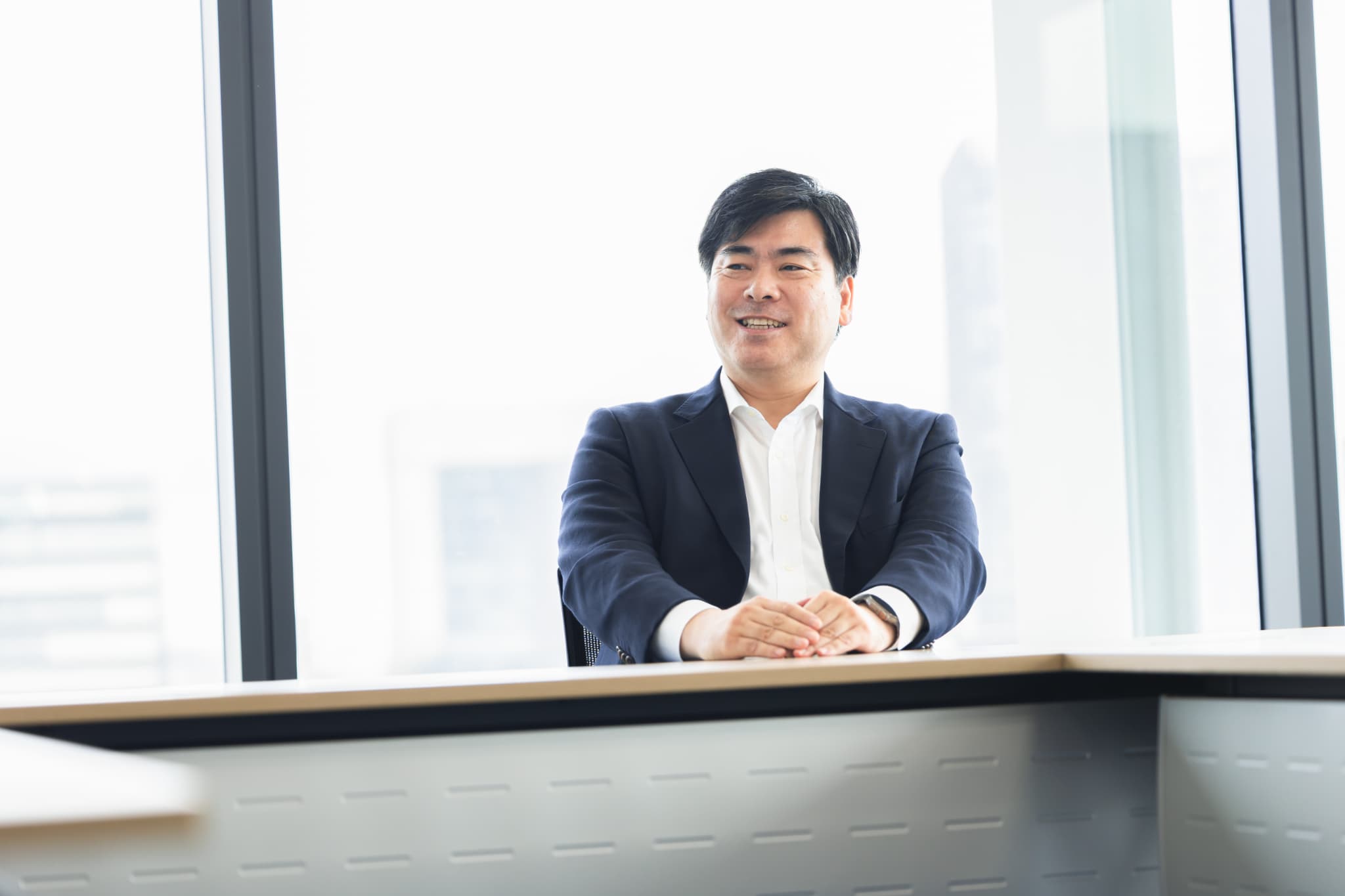
BambaYes, the shipping industry is at a turning point toward decarbonization. Some shipping companies have begun adopting lower-emission fuels and wind-assisted propulsion, which reduce greenhouse gas emissions. However, at present, freight and charter rates do not cover the high initial costs, making it difficult to establish a business. That said, once international frameworks – such as greenhouse gas emission charges – are strengthened, the time will come when low- or zero-emission ships are economically viable. We are working toward that moment, collaborating with Oshima and other shipbuilders to realize low-emission vessels.
Offshore Wind Power: Contributing to Decarbonization with Existing Assets
Could you tell us about your initiatives in offshore wind power, one of your new business areas?
TanakaWe are engaged in two main businesses in offshore wind. The first is developing floating structures for larger, mass-produced offshore wind turbines. Floating offshore wind is attracting attention as next-generation renewable energy, but the technology is still developing and the supply chain for floating structures is not yet established.
To address this, Sumitomo Corporation is partnering with the general engineering firm JGC Corporation to build a supply chain for rapid mass production and transportation of floating components. As part of this effort, at Oshima's Koyagi Shipyard, we are considering a system to manufacture components for floating foundations and, in the future, assemble and mass-produce complete units.
We also collaborate with the Steel Group internally, which is likewise engaged in offshore wind supply chain development. Their global network and expertise provide valuable support in information gathering and business model design.
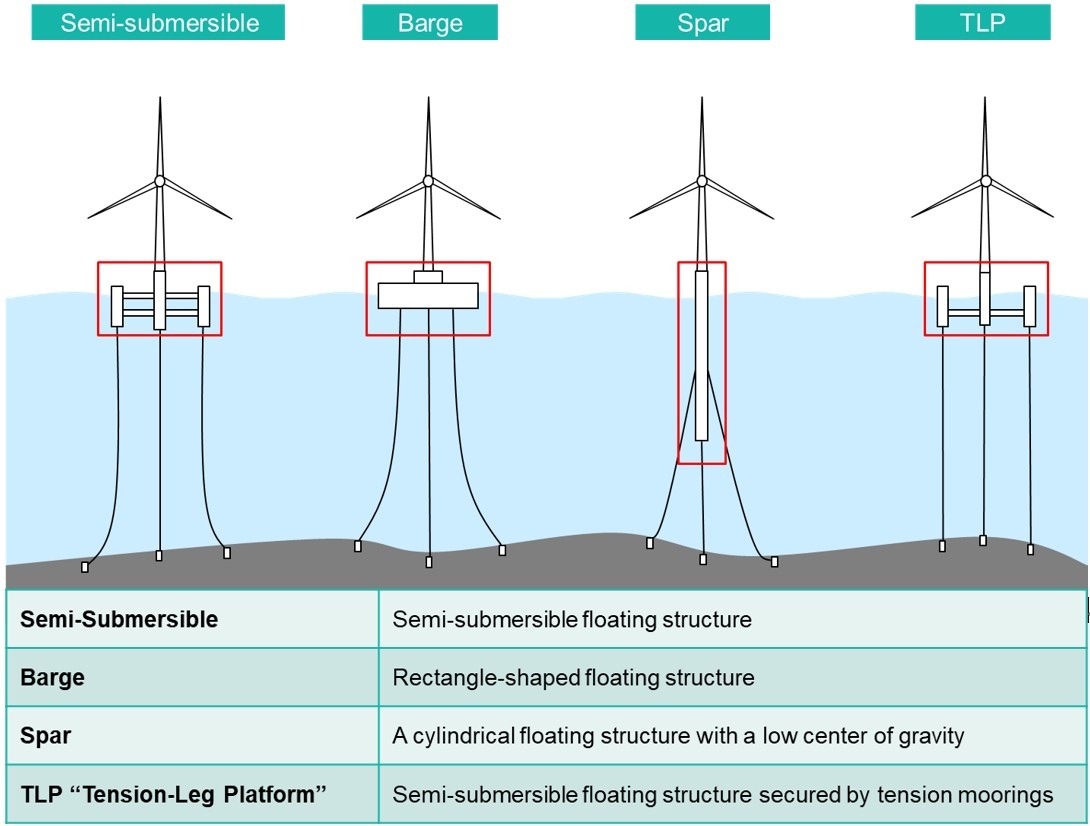
And the second business?
.jpg?h=450&iar=0&w=800)
.jpg?h=524&iar=0&w=931)
TanakaThe second involves investing in support vessels for offshore wind construction. In 2023, through a joint venture with a Dutch company, we established a business operating vessels specialized in transporting wind turbine components. In 2024, we invested in Norway's IWS Fleet, which owns, manages and operates CSOVs (Commissioning Service Operation Vehicles) that provide accommodation and safe transportation for engineers working on offshore wind turbines.
Sumitomo Corporation has long been in the ship business, yet in the European support-vessel sector we had very few connections and little expertise. We started from scratch – beginning with market research, even contacting potential partners via the inquiry forms on their websites. The IWS investment only came through after three offers, and negotiations and internal approvals had to proceed simultaneously within an unusually short timeframe. It was a series of challenges.
Did your past experiences help you when facing such difficulties?

Tanaka This may sound a bit philosophical, but I was encouraged by words once shared by a senior colleague in my trading days, a quote from Toshio Doko*: "Once you have decided what must be done, pursue it with relentless determination. It's not an issue of limited ability, but lack of resolve." In trading, a general trading company stands between parties, but unless you act with strong ownership, customers will not recognize your value. When problems arise, the mindset of "I will solve this, I can solve this" is essential.
In the IWS case, negotiations nearly broke down. Instead of waiting, I bought a ticket to Oslo before even securing a meeting, and within two weeks we had agreed on basic terms. That sense of timing and tenacity is something I honed during my trading days.
*Former president of Ishikawajima-Harima Heavy Industries (now IHI Corporation) who restructured Tokyo Shibaura Electric Company (Toshiba Corporation) and served as chairman of Keidanren. He was known as a "wild man" in Japan's corporate world.
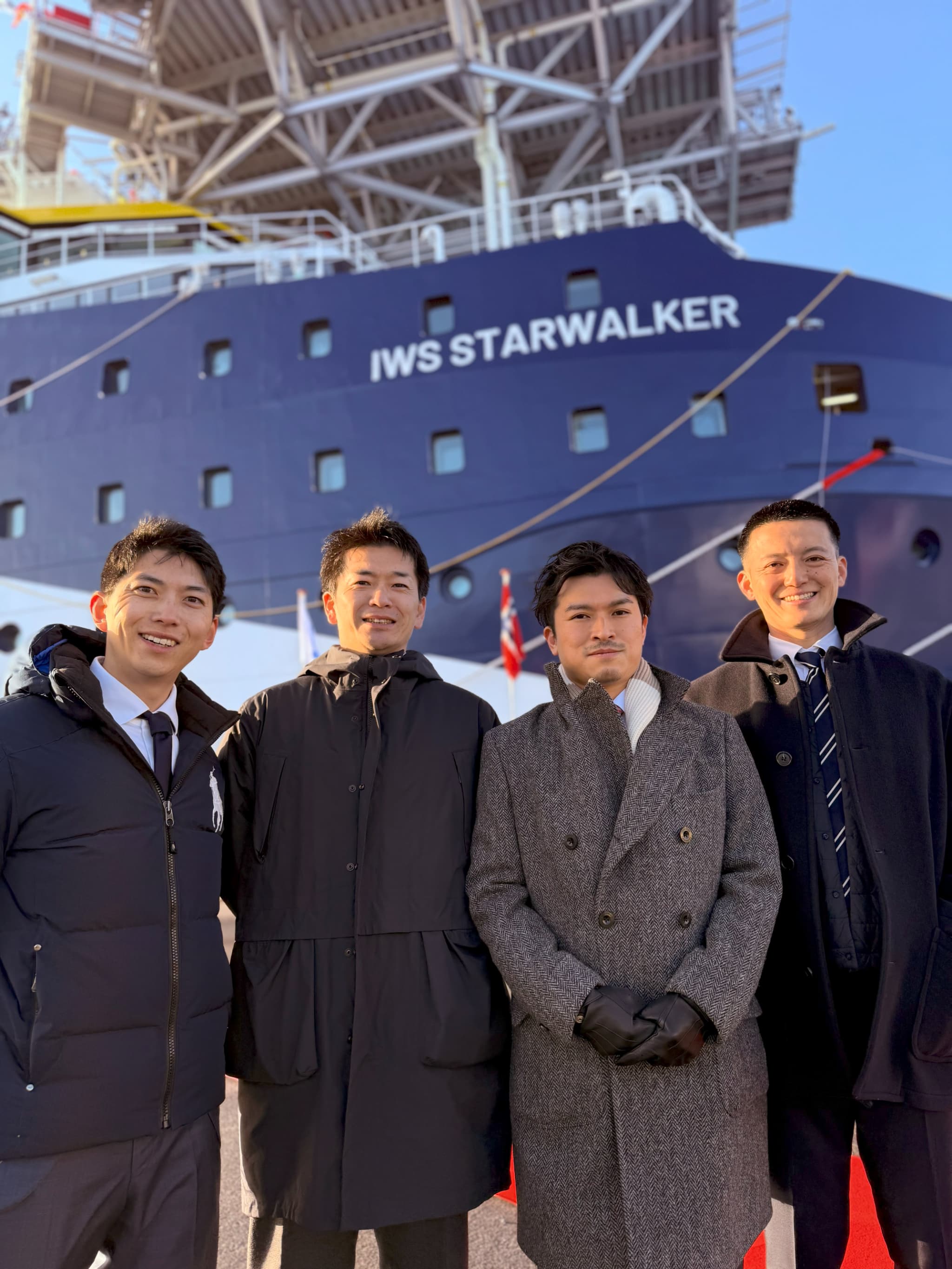
Navigating the Dynamic Shipbuilding and Shipping Industry Toward a Better Society
What do you find most rewarding in this business?
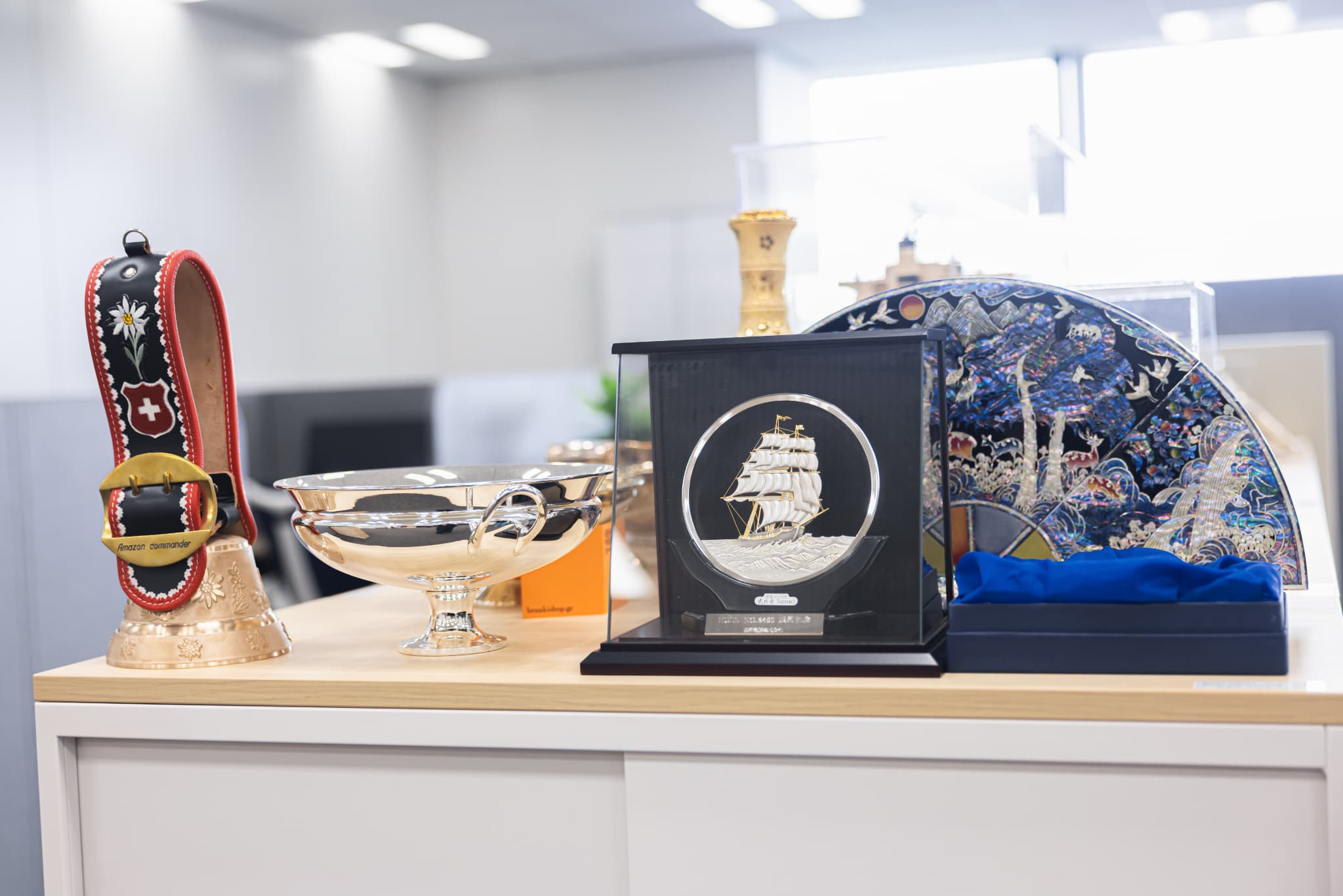
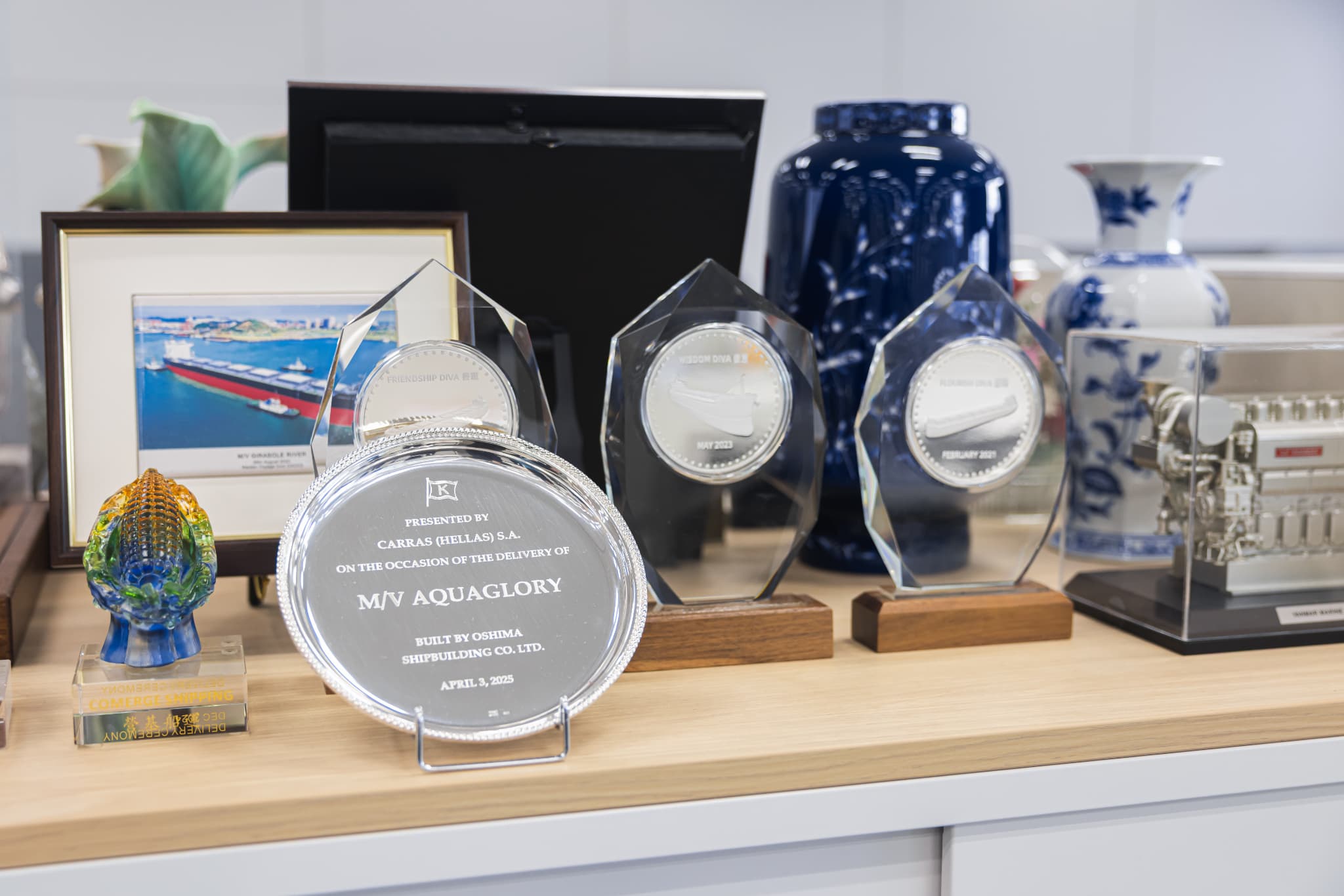
BambaHaving spent my career in shipbuilding, I am drawn to the scale of the business – handling vessels worth four to five billion yen each, often several a year, alongside my manager. What moves me most are the naming ceremonies, where we name and send vessels off after deals that we worked hard to close, and everyone involved shares the joy of completion. In these moments I realize how glad I am to be doing this job. Many shipping companies are family-owned, and the fate of the company can hinge on a single vessel, which sharpens your ability to gauge trustworthiness. Over the years, this industry fosters both expertise and human qualities through relationships built on trust.
TanakaShipbuilding and shipping are infrastructure businesses that support daily life and contribute to achieving a decarbonized society. The pressure is high, but so is the sense of purpose. Another interesting aspect is the industry culture: across East and West, people place more importance on "what you say" and "what you can do" than on titles and positions. If you perform well, you gain recognition not only internally but also from clients.
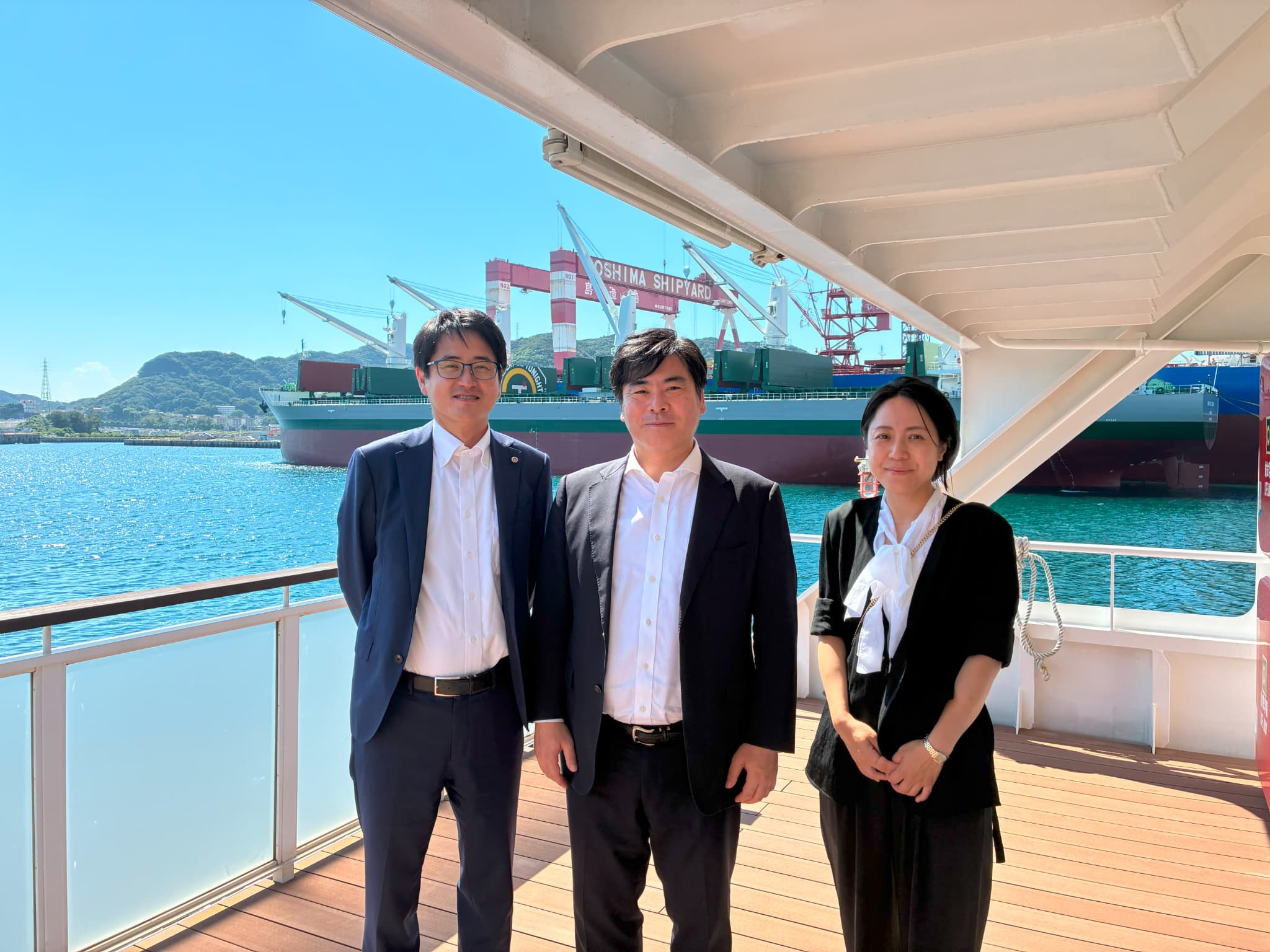
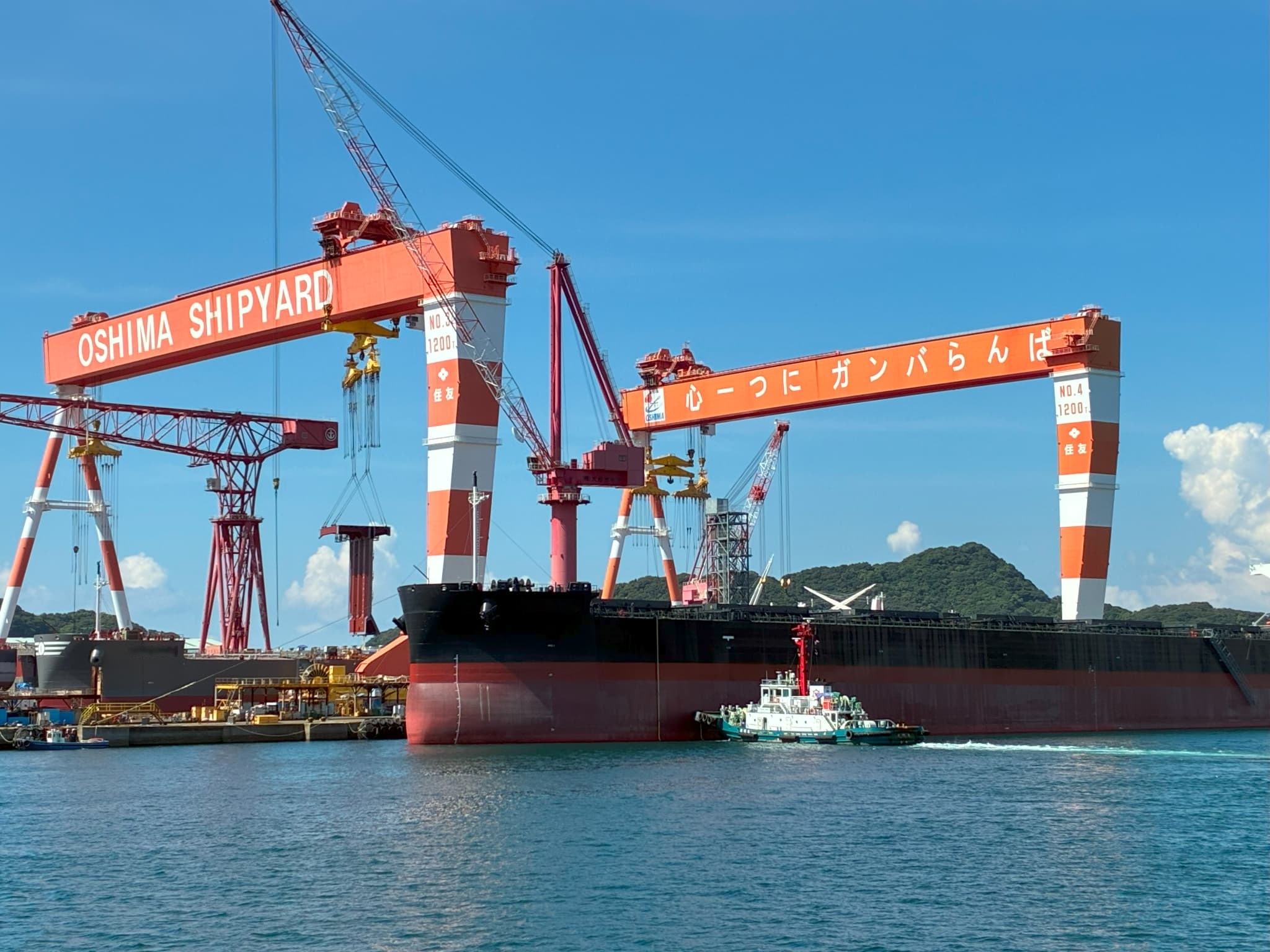
Finally, could you share your outlook for the future?

BambaMoving forward, we will continue to leverage the strength of Oshima Shipbuilding to broaden the scope of our trading business. At the same time, by leveraging that network to grow our ship owing business, we aim to strengthen our resilience against changes in the market environment. On this foundation, we hope to pursue further growth by taking on new business fields, such as owning cutting-edge ships such as ammonia-fueled vessels.
TanakaFor our offshore wind power-related business, we will continue to aim for further scale-up. The business environment surrounding the industry is expected to undergo major changes in the future and we must avoid being constrained by past success or conventional wisdom. We intend to anticipate change and take on work that is both unprecedented and highly challenging, but also of significant social value.

